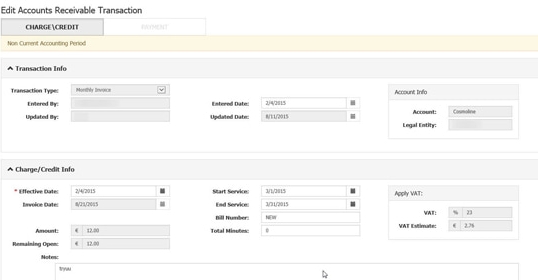Effectively merge finance and technology with the help of a skilled fintech business analyst who will facilitate accurate budgeting and product delivery timelines, prioritize development for optimal business advantage, timely detect risks, and develop strategies for risk mitigation.
Business analysis delves into understanding the domain, capturing its systems and processes, and establishing key business criteria. This serves as the foundation for detailing both functional and non-functional specifications, with the ultimate aim of proposing optimal solutions for software product development.
Business analysis can make or break your financial software development. What are the risks if you bypass this phase?
- Avoiding Time and Budget Overruns. With a clear project vision, a business analyst helps mitigate financial and operational risks. They construct a vital timeline and budget forecast, align it with market trends, and devise a strategy to meet these goals.
- Minimizing Rework Risk. Unmet software needs often stem from communication gaps. Business analysts act as bridges, aligning stakeholders and developers with business goals and tasks. They convert business concepts into technical requirements, preventing misinterpretations that could necessitate revisions.
What are the Responsibilities of a Business Analyst?
As the fintech sector expands, the need for business analysts with expertise in both finance and technology also grows.
Business analysts in this sector operate across numerous specializations, from cryptocurrency development to roles within credit card companies. Their primary function is to simplify communication by translating technical concepts into business language to improve decision-making, efficiency, and success of fintech initiatives.
A fintech business analyst typically undertakes the following responsibilities:
- Elicits and evaluates business requirements from stakeholders to fully understand their needs.
- Conducts market research for industry trends and opportunities.
- Collaborates with stakeholders, developers, and UI/UX experts to define functional and non-functional requirements.
- Documents user stories, use cases, and process flows for clear communication.
- Works closely with the development team to meet requirements for the final product.
- Helps ensure quality and alignment with intended functionality during testing.
- Provides support during user acceptance testing and helps address any issues or concerns that arise.
A business analyst can also act as a product owner, particularly in larger companies, to address operational issues and engage with clients. In this role, they collaborate with stakeholders and the development team to prioritize features, create a product roadmap, and gather feedback for product enhancements. They manage client meetings and facilitate cross-functional collaboration for timely delivery of quality products.
Why Domain Experience Matters
An analyst who has deep subject knowledge is usually far more effective than a more general specialist. What does it mean for a client and the project?
- Rapid onboarding. Thanks to deep financial domain knowledge, a business analyst can integrate into the project faster, accelerating the project kick-off and saving valuable time.
- Budget efficiency. Business analysts with financial domain expertise can ask in-depth questions, anticipate clients’ needs, identify and challenge assumptions, and adopt a proactive approach, leading to fewer errors and, consequently, budget savings.
- Future-proof products. Experts versed in the financial software market can identify key functional and design aspects. Using this knowledge, they craft standout software products that effectively cater to users' needs and stand the test of time.
Benefits of Business Analysis for Financial Software Development
- Compliance assurance. With business analysis, the professionals meticulously craft the requirements for your software applications, ensuring compliance with all relevant laws and regulations. This includes international banking standards, anti-money laundering laws, and data privacy norms.
- Increased ROI through automation. An IT business analyst defines and prioritizes product functionalities, identifying tasks that can be replaced with automated to minimize mundane tasks and human errors. This could involve auto-calculating interest rates, generating financial reports, or streamlining transactions, leading to improved productivity and operational efficiency.
- Risk mitigation. 71% of software projects fail due to poor requirements. Business analysis can help avoid the risk of failed initiatives by using business analysis for the Proof of Concept. Business analysts prioritize the implementation of requirements offering the highest potential benefit to the customer. Additionally, financial or banking software can be designed to predict potential market changes or alert users of risky investments, aiding financial institutions to minimize losses and optimize gains.
- Development cost reduction. Accurate product definition and requirement prioritization eliminate the need for unnecessary changes or reworks. This is achieved through logical and systematic decision-making, where solutions are tailored and aligned to the specific needs of the business or customer.
- Quicker market entry. Speeding up product delivery and being first to market gives you a competitive edge. A clear roadmap outlining the transition from current to future state, combined with stakeholder consensus, can facilitate this process.
- Advanced security assurance. Business analysis aids in embedding advanced security features like encryption, two-factor authentication, and intrusion detection systems into the software. This approach not only safeguards against data breaches but also maintains the integrity and confidentiality of user data.
- Enhanced decision-making. A skilled IT business analyst uses financial software analytics tools and predictive models to deliver data-driven insights about market trends and customer behavior. This aids decision-making, leading to improved bottom line, management, cost efficiency, team collaboration, sales, and project success rates.
- Competitive advantage through digitization. Business analysts can assist financial institutions in transitioning their services to the online domain, effectively meeting customer needs. By spotting trends in technology transformation, these professionals guide institutions in adapting to the swiftly evolving landscape.
The Role of Business Analysis in Software Development
Discovery Phase with Clear Project Requirements and Idea Validation
Deliverable: Vision and Scope document
Business analysis kicks off the process, diving deep into business needs and requirements. This initial stage refines the project cost estimate and prevents budget overruns by providing a detailed breakdown of requirements, functionalities, and design elements.
The key deliverable at this stage is a Vision and Scope document. It presents the overarching vision, purpose, and desired outcomes of the project, plus work that needs to be done.
An experienced business analyst can evaluate the technical feasibility of a concept from their analysis. If there's uncertainty, they may initiate a Proof of Concept (PoC) to validate the idea, where the team develops a simplified version of crucial functionalities. This early detection of potential limitations by business analysis enables a more efficient and cost-effective software development process.
Insights from business analysis and the PoC can prompt stakeholders to start with a Minimum Viable Product (MVP) development. Using a roadmap from the business analyst, the development team crafts an initial, feedback-eliciting version of the software. This MVP paves the way for future development and allows the business analyst to assess the idea's practicality and identify potential for a full-scale software development project.
Business analysis during the discovery phase involves:
- Exploring the business context. Business analysts delve into the business background, outlining stakeholder profiles and identifying their key interests, values, expectations, and limitations.
- Evaluating business requirements. Business analysts conduct an in-depth examination of business opportunities, major strengths, and owner's challenges (using SWOT analysis). They also set business goals, establish success metrics, and identify potential risks.
- Defining the solution vision. This vision provides a contextual framework for decision-making throughout the product development lifecycle. It involves selecting system components, creating process diagrams, and wireframes, and outlining major features, dependencies, and both functional and non-functional requirements.
- Determining scope and constraints. This encompasses the scope for initial and subsequent releases, as well as the product backlog legend and roadmap. It also includes features not currently planned to include in the product (these may be under consideration but are not on the roadmap yet).
Shaping Product Delivery Through a Detailed Development Roadmap
Deliverable: the Software Requirements Specification
The primary aim of business analysis during product delivery is to ensure precise software development. By creating comprehensive software requirement specifications, business analysts work to prevent misunderstandings when active software development begins.
Key responsibilities of a business analyst during Product Delivery:
- Building the product backlog. By providing detailed functional specifications based on gathered requirements, a business analyst lays the groundwork for a comprehensive backlog and action plan.
- Establishing acceptance criteria and test plans. Defining acceptance criteria is as crucial as formulating user stories. These criteria outline the conditions to assess if a feature meets stakeholders' and end-users' expectations. Together with the product manager, a business analyst shapes these criteria and also develops test plan requirements for later software testing.
- Planning the subsequent releases. The business analyst determines the extent of business issues to address, modify, complete, or remove based on feedback, forming the backlog for a new development round.
- Developing user training materials. Once software programs or applications are developed, a business analyst creates user manuals or training materials.
Which Tools Can Empower Your Business Analysis?
Achieve your business goals without overstepping your budget and deadlines through key business analysis techniques and tools.
Prototypes and Diagrams. It's important for business analysts to select the right prototyping tools tailored to the project's specific needs, stakeholder preferences, and the level of interactivity required for successful idea validation. Popular tools include Figma, Microsoft Visual Studio, Adobe XD, InVision, and others.
Management and Communication. Strong management and communication skills enable a business analyst to navigate complex stakeholder relationships effectively, foster collaboration, and ensure project goals are understood and met. To maintain transparency and consistent communication, business analysts often use project management tools like Confluence, Jira, ClickUp, or any preferred tools of the client.
Hire BA experts for financial software business analysis
For nearly two decades, our team has been utilizing best practices in business analysis, helping clients navigate their business challenges and successfully deliver digital products. Each business analyst in our team brings essential competencies that consistently drive excellent results.
Essential Skills for Your FinTech Business Analyst
- Communication
- Ability to listen actively and understand client requests and project ideas
- Effective written and verbal communication, primarily in English
- Strong consulting and interpersonal communication skills
- Facilitation of communication across departments
- Proficiency in translating technical information into language that business stakeholders can understand
- Analysis
- Strong analytical thinking and problem-solving abilities
- Accurate and detail-oriented reporting skills
- Competence in business analysis techniques and best practices
- Familiarity with business structure
- Understanding of the digital landscape of banking, investing, insurance, and risk management
- Proficiency in process modeling
- Skill in stakeholder analysis
- Technology
- Familiarity with SCRUM to streamline team-oriented projects
- Knowledge of databases, data gathering and storage processes
Whether you're launching a new product or exploring ways to enhance or expand your existing system, reach out to our team.
We offer:
- In-house business analysts, project managers, and Scrum masters with extensive hands-on experience in the financial domain
- Dedicated, cross-functional teams focused on end-to-end software product development
- Rapid team extension with senior tech specialists for flexibility and adaptability
- A strong business-oriented and proactive problem-solving approach
- Broad experience across multiple domains, including logistics, retail, agriculture, healthcare, education, energy, and publishing
- A proven track record of successfully delivering projects
Frequently Asked Questions
Absolutely, business analysis (BA) is vital in software development. It serves to define, document, and communicate the business objectives of a software project, converting these goals into detailed project requirements.
A software business analyst's main role is to identify business needs and transform them into a solution. This process involves understanding the rationale behind a new application and then defining its user, functional, and non-functional requirements. These aspects form the foundation for teams to evaluate, plan, design, and develop a product.
Business analysis in a software development project involves understanding and defining the needs of a business within the financial industry, and translating these into software requirements. The goal is to create software solutions that address these needs effectively while adhering to financial regulations and standards.
- Identifying and prioritizing technical requirements
- Creating detailed reports and visualizing data analysis
- Pinpointing problems and suggesting appropriate solutions
- Unearthing business opportunities
- Handling budgeting and financial forecasting
- Planning and managing projects
- Determining business requirements and objectives
- Facilitating communication between management and production teams
- Ensuring regular progress reporting and follow-through
Project Manager is responsible for initiating, planning, executing, and successfully closing or maintaining projects. They define the scope of the project and manage its execution, including the responsibility of assembling a capable team to carry out the work.
Conversely, a Software Business Analyst concentrates on realizing objectives pertinent to the business. Their role encompasses understanding the client's business model and market competition, collecting client specifications, and transforming these into actionable plans for product development. They also gauge the potential business value and confirm that the final products satisfy the client's expectations.
In the context of software development, particularly when outsourcing software development to the client's side, a product manager serves as the executive leader of the project.
Product managers, also known as product owners, are responsible for crafting the product roadmap, implementing the product strategy, and managing the product's profit and loss (P&L). They also facilitate communication among marketing, sales, and development teams to ensure smooth coordination.
On the other hand, a software business analyst focuses on understanding the client's needs and business objectives. Their primary task is to translate these needs into actionable instructions for the engineering team, using technical documentation and wireframes. They also ensure that all business requirements are met throughout the development process.
Recommended posts
Portfolio
Our Clients' Feedback






















.jpg)
.png)
.jpg)














Belitsoft has been the driving force behind several of our software development projects within the last few years. This company demonstrates high professionalism in their work approach. They have continuously proved to be ready to go the extra mile. We are very happy with Belitsoft, and in a position to strongly recommend them for software development and support as a most reliable and fully transparent partner focused on long term business relationships.
Global Head of Commercial Development L&D at Technicolor